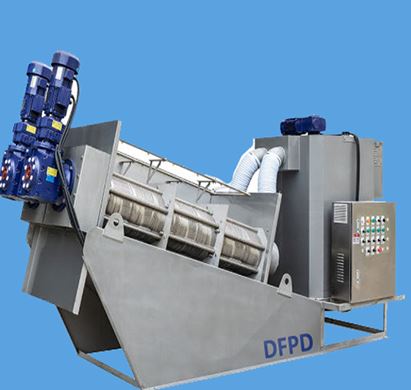Efficient Dewatering Solutions: Choosing the Right Equipment for Your Industry
In industrial processes that require solid-liquid separation, selecting the right equipment can significantly impact operational efficiency and cost savings. One of the most effective tools in this field is the screw press — a mechanical device designed to compress and dewater a wide range of materials. Whether you're in wastewater treatment, agriculture, or food processing, understanding what to look for in a dewatering system is crucial to maximizing performance. Let’s explore what makes an effective system, the industries it serves, and the features that matter most.

Why Screw Press Systems Are Gaining Popularity
The screw press operates on a simple principle: by applying continuous pressure via a rotating screw, liquid is extracted from solid materials. This system offers numerous advantages, such as:
- Energy Efficiency: Uses minimal power compared to thermal drying.
- Compact Design: Saves space in industrial environments.
- Low Maintenance: Fewer moving parts mean less wear and tear.
- Versatile Application: Suitable for sludge, pulp, manure, and more.
Key Features to Consider in a Dewatering Press
Before selecting a system, consider the following features to ensure the equipment aligns with your process requirements:
- Material of Construction: Stainless steel components ensure durability and resistance to corrosion.
- Pressing Zone Length: A longer zone can increase dryness level, which is beneficial for certain waste types.
- Screw Design: Different pitch and diameter configurations affect performance and throughput.
- Control Systems: Automated features like pressure adjustment and feed rate control enhance consistency.
- Ease of Cleaning: Removable covers and clean-in-place (CIP) systems reduce downtime between batches.
Industries That Benefit From Screw Press Systems
Screw press systems are widely adopted across multiple sectors:
- Municipal Wastewater Treatment: Helps manage sludge with minimal odor and energy use.
- Pulp and Paper: Reduces water content in fiber pulp for better recycling.
- Food Processing: Used in juice extraction, oil pressing, and solid waste handling.
- Agriculture: Efficiently dewaters livestock manure, making it easier to manage, transport, and convert into nutrient-rich compost.
- Biomass and Renewable Energy: Prepares organic material for biogas production.
Making the Right Choice
Choosing the right screw press is more than just comparing specs — it’s about finding a long-term partner in efficiency. Whether you’re scaling operations or upgrading outdated machinery, work with an experienced screw press manufacturer who understands your industry’s unique needs and compliance standards. Look for providers offering:
- Custom engineering services
- Proven performance in similar applications
- Strong post-installation support
- Sustainable and eco-friendly design principles
Final Thoughts
Investing in the right dewatering equipment pays off in reduced operational costs, improved sustainability, and better compliance with environmental regulations. The screw press stands out as a reliable, energy-efficient solution across many industries. With the right system in place, businesses can expect improved productivity and a cleaner, safer working environment.
